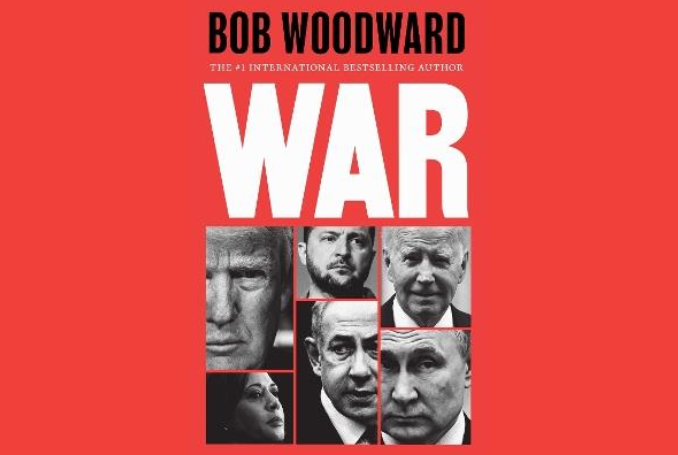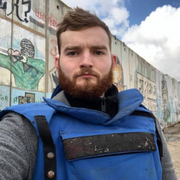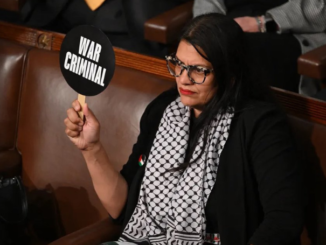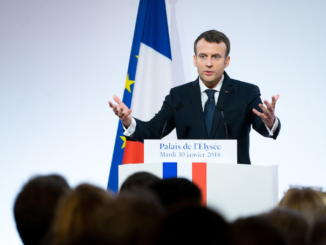
Although the book offers some insights that could well be valuable to a wider analysis of the ongoing genocide in Gaza, it is clearly biased in many respects.
Veteran Journalist Bob Woodward’s International bestselling ‘War’ paints a damning picture of the Arab regimes and indicates their desire to see the Palestinian group Hamas defeated; yet the book’s content as a whole casts some doubt over the veracity of the claims made and quotes attributed to leaders.
The book, War, provides what could be an important insight into the workings of US President Joe Biden’s cabinet, specifically as it pertains to Gaza. While it provides quotes from senior officials throughout the Western-aligned governments of the Arab world, the context in which they are written, and to paint which picture raises some questions about the narrative presented.
The 77-chapter read takes you through a journey into the Biden administration and immediately assumes a very critical approach to Donald Trump. It runs through the January 6 attack on the US Capitol, as well as the war in Ukraine and a variety of other issues before reaching the Hamas-led October 7 offensive against Israel.
Bob Woodward is clearly building the character of Joe Biden throughout the book, lionizing him and his administration. For example, when it comes to the US withdrawal from the war in Afghanistan, Biden is portrayed as being greatly bothered by the condemnatory responses to his catastrophic handling of the situation.
So much so that the American President is said to have spoken about his son Beau Biden, before deciding to take a walk alone in Washington next to the memorial for fallen soldiers.
Beau Biden has been previously rolled out by Joe Biden himself in order to try and make his points heard when speaking about the US army and foreign wars. While his son was an army Major, he died of a brain tumor and not during his deployment to Iraq as was once claimed by the US President.
Another major issue that you will run into as a reader is a clear lack of depth when it comes to Woodward’s understanding of West Asia politics. In addition to this, the author overstates the number of Israelis killed on October 7. He writes that “overall, Hamas killed more than 1,200 Israelis”, before explaining that “it was the deadliest attack in Jewish history since the Holocaust”.
Not only does the book refuse to distinguish between Israeli combatants and civilians, but it also overstates the total death toll, which is indisputably 1,139 killed. Some reputable media outlets say that the total death toll was made up of 815 civilians and 324 soldiers killed, while others have stated that it was 695 civilian deaths and 373 combatants, along with 71 foreigners.
In chapter 46, Woodward quotes the Hashemite ruler of Jordan, King Abdullah II, as stating that he had informed Israel “not to get close to Hamas. Hamas is the Muslim Brotherhood.” The author then gives his own commentary on who the Muslim Brotherhood are, adding that “its violent offshoots have taken on different forms and ideologies, including Hamas and the Palestinian Islamic Jihad in Gaza.”
The description of Palestinian Islamic Jihad (PIJ) as an “offshoot” of the Muslim Brotherhood is completely inaccurate. While the group’s founder and first Secretary General, Fathi Shiqaqi, was once loosely affiliated with the Muslim Brotherhood during his university years in Egypt, his movement was never backed by the Muslim Brotherhood and was very much in conflict with it.
Without going too deep into the history of PIJ in Gaza or its ideology, it never received any funding from the Muslim Brotherhood in order to help it start up and its members would even engage in street clashes with the precursor group to Hamas known as the Mujamma al-Islamiyya.
While you could argue that the likes of Seyed Qutb influenced the founding members of PIJ, the same could be said of Ayatollah Ruhollah Khomeini and a range of other revolutionary Islamist thinkers. Ultimately, this depiction of PIJ is lazy and incorrect.
Another aspect of the book, which comes off as propaganda, is the focus on the US requests to allow aid to enter the Gaza Strip, allegedly to the great frustration of US President Joe Biden. According to a panel of UN experts, areas of Gaza officially entered into famine as of July 9, while currently, we see the situation deteriorating even further.
On this issue, at the beginning of the war, Israeli Prime Minister Benjamin Netanyahu is quoted as telling the US Secretary of State, Antony Blinken, that “the people of Israel will not tolerate giving these Nazis aid if we have not completely destroyed Hamas”. “This is aid for innocent men, women and children who will starve and who will die if they don’t get aid”, Blinken is said to have responded.
The US Secretary of State is quoted as telling Netanyahu, that from the Arab leaders “the thing we heard over and over is they support what you’re doing. They support defeating Hamas.” Before arguing the alleged words of Emirati leader Mohammed Bin Zayed “Israel needs to give us space to give them space”. Netanyahu then responded by doubling down and stating “not a drop, not an ounce of anything will go into Gaza to help people”.
Chapter after chapter describes Antony Blinken, as working tirelessly to secure aid entry to Gaza. While Woodward paints the situation as if Israel were in a dominant position over the United States, the reality was that Washington was providing tens of billions in military aid to ensure the war could continue and failed to even threaten using this as leverage for aid entry.
Although this came after the book was published, in October the US Biden administration issued a demand that Israel allow over 350 aid trucks to enter the besieged coastal territory per day, giving them a month to ease the humanitarian situation.
Despite the World Food Programme having stated that no food trucks had entered northern Gaza for an entire month up to October 11, the Israelis allowed only a handful of aid packages to enter the north as the deadline passed without any action from the Biden administration.
Qatari Emir Tamim bin Hamad Al Thani was also quoted in the book as telling Hamas “You have no friends left”, while Mohammed bin Zayed of the UAE said that Hamas “must be destroyed”.
Echoing this anti-Hamas sentiment, was Saudi Arabia’s foreign minister, Prince Faisal bin Farhan, who is quoted as blaming the situation on the Israeli Prime Minister’s alleged dealings with Hamas, concluding with “we’re not going to pay to clean up Bibi’s mess”.
Woodward quotes the Saudi foreign minister as repeatedly referring to Netanyahu by his nickname “Bibi”. Egypt’s intelligence chief, Abbas Kamel, is even quoted as recommending a strategy for the Israelis to eliminate Hamas: “Israel shouldn’t just go in all at once. Sit back, wait for them to pop up and chop their heads off”, Kamal recommended.
As it is not possible to know whether all of these quotes are fully genuine, or have not been used out of context, what is easily observable is that they are employed in a manner that depicts a very specific narrative. Bob Woodward carefully constructed a story, which is built around the idea that Hamas, as an offshoot of the Muslim Brotherhood, was propped up by Benjamin Netanyahu and that his actions – post October 7 – are all a reaction to this situation blowing up in his face.
It also works to paint both the leaders of the pro-US Arab leadership and the Biden administration as rational actors who are looking to remedy the catastrophe that erupted after the Hamas-led attack. This narrative provides the reader with a pro-Israel and pro-Biden perspective, which deems Netanyahu as an irrational actor, while also maintaining the victim status of the Israelis as a whole.
Although the book offers some insights that could well be valuable to a wider analysis of the ongoing genocide in Gaza, it is clearly biased in many respects and the author makes several errors that appear to emanate from his lack of intricate knowledge of West Asia.
As other sources do appear to corroborate the spirit of the quotes provided in War, they cannot be discounted due to other faults within the book, yet the piece requires a reading between-the-lines approach.
(The Palestine Chronicle)

– Robert Inlakesh is a journalist, writer, and documentary filmmaker. He focuses on the Middle East, specializing in Palestine. He contributed this article to The Palestine Chronicle.








Excellent article.
One would reasonably expect that Arab states would be unequivocal in their support of their Palestinian brothers but, far from it, their silence continues to be deafening and their betrayal a disgrace to all Arabs. The UAE, in now opening an Embassy in Tel Aviv, is perhaps the most perfidious. How many pieces of silver did it take for their ‘normalisation’ of relations with Israel?
Arab neighbours urged Palestinians to leave their homes during 1948 nakbah.
They assured them it was just temporarily.
Since then they’ve never returned to their primary homes & recent wars now chasing them out from where they fled to of what remains of their land(Gaza&WestBank).
Enemy ordered them to leave northern Gaza after Oct 7 and many of those that left and still alive have returned to northern Gaza via Palestinians fighters tactical victory on both diplomatic(ceasefire arrangement) and militarily front (Killing not less than 1000 armed&fortified Israeli troops is not an easy task for a rocket&rock throwing besieged people).
Put simply, we failed them but they live on biidhniLLAH.